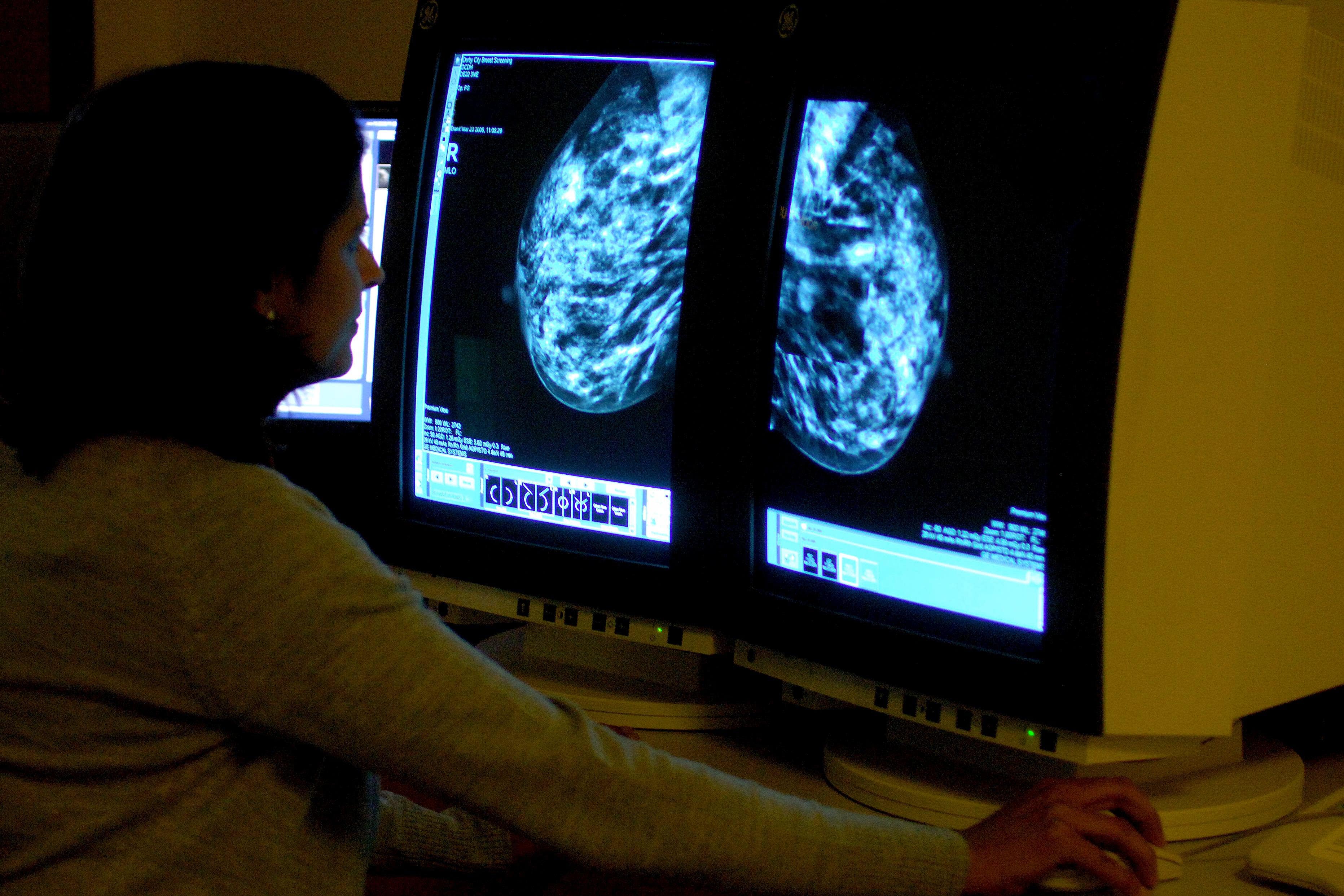‘Huge breakthrough’ in breast cancer drug therapy ‘doubles survival time’
New three drug combination could be ‘transformative’ for breast cancer treatment, researchers say

Your support helps us to tell the story
From reproductive rights to climate change to Big Tech, The Independent is on the ground when the story is developing. Whether it's investigating the financials of Elon Musk's pro-Trump PAC or producing our latest documentary, 'The A Word', which shines a light on the American women fighting for reproductive rights, we know how important it is to parse out the facts from the messaging.
At such a critical moment in US history, we need reporters on the ground. Your donation allows us to keep sending journalists to speak to both sides of the story.
The Independent is trusted by Americans across the entire political spectrum. And unlike many other quality news outlets, we choose not to lock Americans out of our reporting and analysis with paywalls. We believe quality journalism should be available to everyone, paid for by those who can afford it.
Your support makes all the difference.A new drug therapy for aggressive advanced breast cancer could potentially double the amount of time patients live without the disease progressing, a trial has found.
The three-drug combination was hailed by researchers as a huge breakthrough and potentially transformative for those with a common form of breast cancer.
A study, published by The New England Journal of Medicine, revealed some 161 patients were given a three-drug therapy, which comprised two targeted drugs – palbociclib, a type of cancer growth blocker, and a new drug called inavolisib.
The treatment targets the growth of a cancer protein called PI3K protein.
The study included 325 patients from across 28 countries, more than half of whom had cancer that had spread to three or more organs, while more than 80 per cent had already had chemotherapy.
The 161 patients were given the medication alongside the hormone therapy fulvestrant as part of the combination.
The placebo group, which included 164 patients, were given a placebo plus palbociclib and fulvestrant.
Researchers found the three-drug therapy delayed disease progression by an average of 15 months compared with 7.3 months in the placebo group.
After 18 months, 46.2 per cent of patients in the three-drug group were showing no signs of disease progression compared with 21.1 per cent of placebo patients.
Anne Lury, 53, was given inavolisib after joining a clinical trial at the Royal Marsden. She was diagnosed with stage two breast cancer in 2007 and 10 years later was told the disease had spread to other parts of her body.
Ms Lury said: “Following my diagnosis, I was treated with surgery, chemotherapy and radiotherapy, and when the cancer spread to other parts of my body 10 years later I received the targeted therapy drug palbociclib.
“After three years, the treatment stopped working for me, but, thankfully, I was able to receive inavolisib as part of a clinical trial.
“Aside from fatigue I had minimal side-effects, and although I’m now on other treatment I wouldn’t be here if I hadn’t had the opportunity to join the trial at the Royal Marsden.”
Lead author Nick Turner, a professor of molecular oncology at the Institute of Cancer Research, London, and consultant medical oncologist at the Royal Marsden NHS Foundation Trust, said: “This is the first study to demonstrate the potential of a therapy combination, which targets the three key aspects of the biology of PIK3CA mutant HR-positive breast cancer.
“The results show that inavolisib in combination with palbociclib and fulvestrant significantly improves progression-free survival when given as a first treatment for the disease.
“It is a huge breakthrough that builds on a long programme of research at the ICR which could represent a transformative advance for people with this type of breast cancer.”
According to Cancer Research UK there are more than 56,000 new cases of breast cancer every year and almost 11,500 deaths.
It is understood about 70 patients of patients have HR+/HER2- breast cancer, while PIK3CA mutations are found in 35 per cent to 40 per cent of HR+ breast cancers.
The combination of palbociclib and fulvestrant has been available as an option for patients with certain types of breast cancer on the NHS since 2022.
The three-drug therapy of inavolisib, palbociclib and fulvestrant is not approved in the UK, but was given the green light by the USA’s Food and Drug Administration (FDA) earlier this month.
Dr Simon Vincent, director of research, support and influencing at the charity Breast Cancer Now, said: “Around 61,000 are thought to be living with secondary breast cancer in the UK which, although currently incurable, can be treated to slow the spread of the disease and improve quality of life.
“These findings show that this new treatment approach, using a combination of three drugs, could provide people living with secondary breast cancer an additional eight months without their disease getting worse, giving them precious more time with their loved ones.”
Join our commenting forum
Join thought-provoking conversations, follow other Independent readers and see their replies
Comments